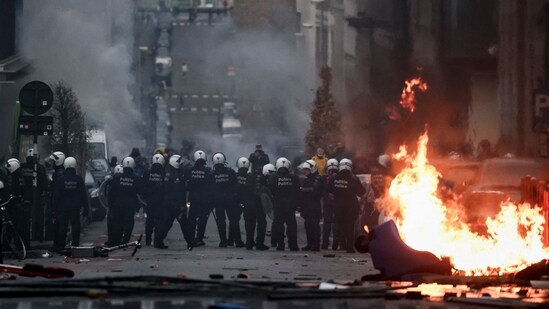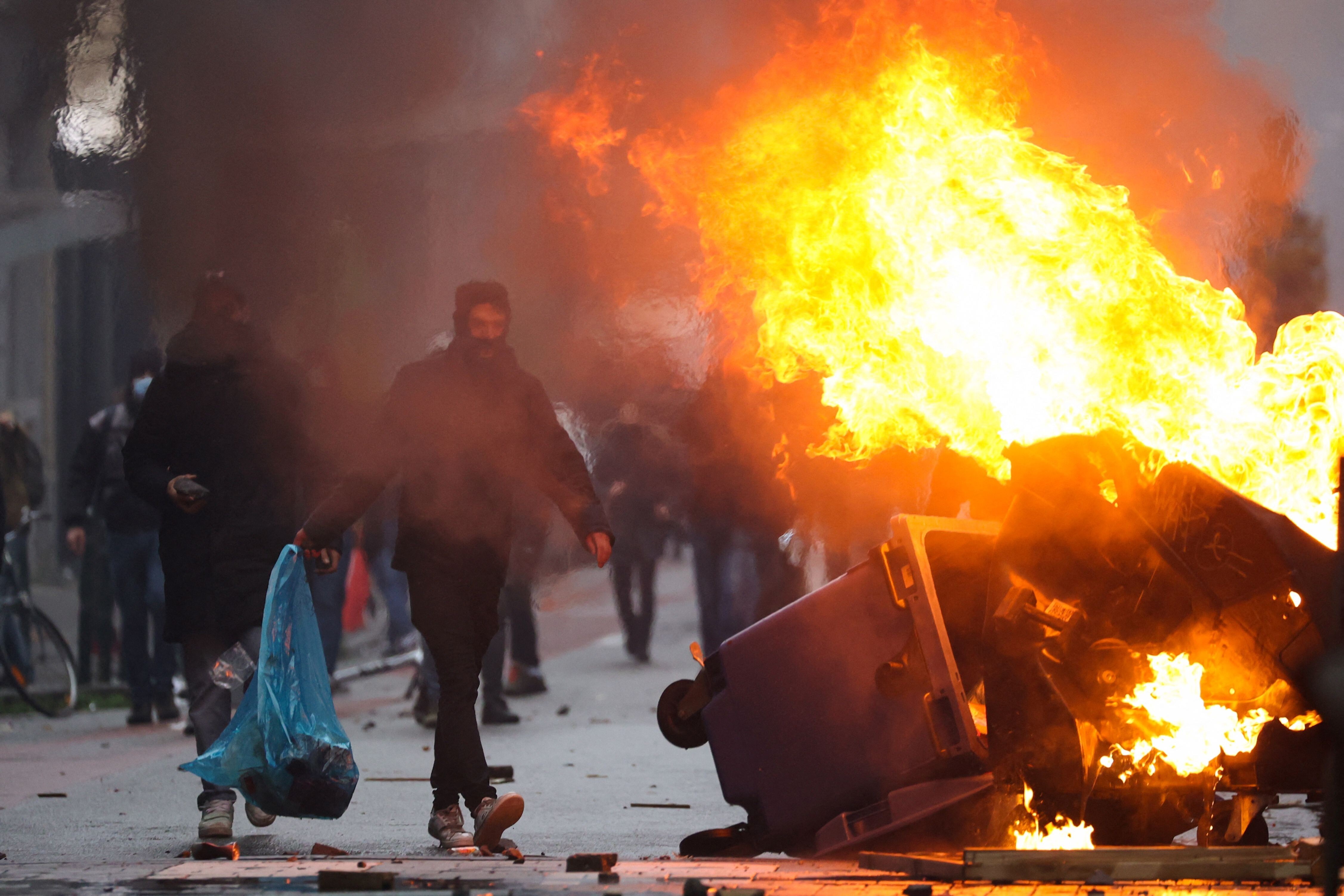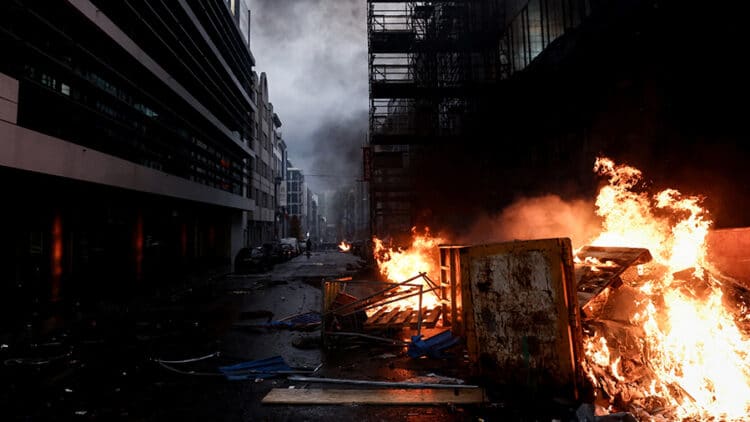In the last few days, riots have rocked most of the major cities of Europe. Vienna, the capital of Austria saw tens of thousands of protestors throng the streets, because the Austrian government has declared a new national 20-day lockdown from Monday, and decided to make vaccinations compulsory from 1st February 2022.
Croatia’s capital Zagreb also saw protests against the government decision to make vaccinations mandatory for public sector workers. Thousands also gathered at the Circus Maximus in Rome to protest against the Italian government’s introduction of the Green Pass certificates, which are required at workplaces, venues, and even public transport.
In France, the protests turned violent as rioters looted shops and set businesses on fire. The French island of Guadeloupe, in the Caribbean, was also racked by rioting. Back in Europe, Brussels, the capital of Belgium, saw protests against COVID passes. The protestors threw fireworks and rocks at police forces. Fireworks also found their way into the hands of protestors at The Hague and in Rotterdam, Netherlands. The firing of live shots has been reported in these especially violent riots.

The Flashpoints:
These riots, happening in some of the most developed countries of the World, are mainly in response to increasingly tightening anti- COVID rules, like the mandatory use of face masks, nationwide lockdowns, as well as the introduction of Covid, passes to keep unvaccinated out of public places.
These restrictions come in the face of rising COVID infections in Europe, in what is being called the fourth wave of the pandemic in the continent. This flare-up of cases, the worst since November 2020, is supposedly caused by the highly transmissible Delta variant of the virus.
Why there is a Need for Restrictions
These restrictions and mandates aim to keep the total number of COVID cases in the country within a manageable limit. While many people infected with the disease see only mild symptoms and recover on their own, some need to be hospitalized. Even among those who need hospitalization and ventilator support, most do recover. The lethality of the Sars-Cov-2 virus, which causes the COVID disease, is thankfully low.
However, when a large number of people become infected, the number of hospitalizations increases proportionately. The number of hospital beds, ventilators, and care personnel in the hospitals are limited, and cannot be scaled up in a short period of time. Once the hospitals get filled up, patients suffering from both COVID and other conditions will die due to lack of treatment — even for conditions that are usually not life-threatening and can be easily treated with proper medical care.

Vaccines and Vaccine Hesitancy towards the end of 2020, and the beginning of this year several COVID vaccines were approved, developed by different pharmaceutical companies like Pfizer, Moderna, Johnson and Johnson, Bharat Biotech, etc. These vaccines were the result of concerted efforts of researchers worldwide who developed a working vaccine a little more than a year after the SARS-COV-2 virus first appeared in China of Dubai province in late 2019. At this moment, the vaccine remains our best defence against this deadly disease that has already claimed more than five million lives.
However, while many have welcomed the vaccine for the lifesaver that it is, many have doubted its effectiveness and remained apprehensive of getting the jab. Misinformation, fear, and misdirection of the populace by some characters for political gain has made the problem worse. Concepts of personal freedom and will are being regularly distorted by such people.
As a result of this vaccine hesitancy, a sizable portion of the population of developed countries like Germany and Austria remains unvaccinated. The current spike in cases mainly involves the unvaccinated sections of society. This wave has even been dubbed the pandemic of the unvaccinated. Not only is this vaccine hesitancy of some misled people putting others at risk by overwhelming medical facilities, but it may also very well lead to the next super variant of the SARS-COV-2 virus.

Do Mandatory Vaccinations work?
In the face of growing vaccine resistance, governments are being forced to declare mandatory vaccinations in their countries. This is because vaccines are very cheap, simpler and far better than the alternative that involves a huge loss of life and financial destruction. Public health and the economy of a country are not matters to be left at the whim of a group of people who lack the ability to understand basic science. However, it is also true that mandates are a two-edged sword, turning away those who were hesitant but not outright against the vaccine.
But with the world running out of time, can such considerations really be made anymore?
Also Read: The 152-year-old Suez Canal: How it sped up travel and increased global trade
















